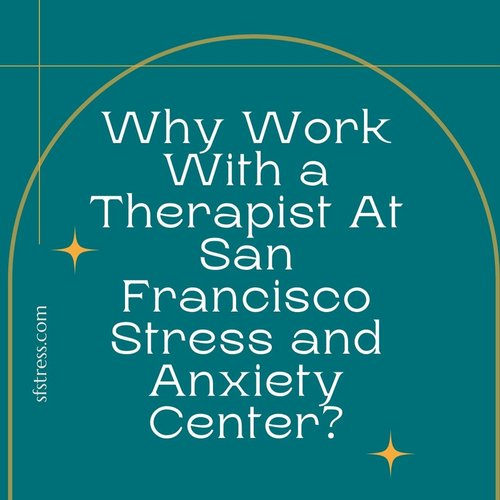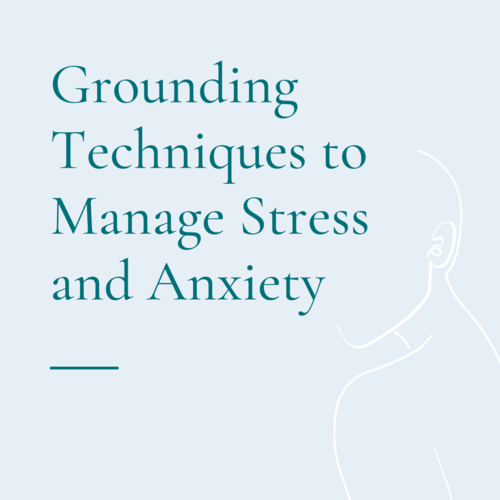At San Francisco Stress and Anxiety Center you are more than just a client, you are a valued individual. We understand how difficult it can be to reach out and ask for help.
Our treatment is customized to you. Your history, challenges, goals and ambitions are completely unique – and our approach is as well. We specialize in rolling up our sleeves and working one-on-one to develop a plan that works at your pace and in tune with your needs.
WHO WE ARE
San Francisco Stress and Anxiety Center is a group of experts who are licensed in their professional field to help you overcome issues and to lead a healthier, happier, stress-free life.
Each professional is educated in their field and have come together to work as a team to wrap around clients in the field of counseling and psychiatry. We offer face to face as well as online resources so that you do not have to go without getting treatment because of a busy schedule.
We offer appointments within 48 hours (sometimes same or next day!)
WHAT MAKES US DIFFERENT
With 50 highly qualified clinicians we are sure to match you with the best therapist for your needs. Whether engaging in individual therapy, couples work, long- or short-term therapy, our clients discover quickly the value of working with experts whose hearts are in the game.
Our Care-Coordinators are sure to match you with a clinician that would be the best fit for you.
Over 98% of our clients have been matched with a clinician that they want to continue working with.
If you are unsatisfied with you first session, or think your clinician isn’t the best match, we will set you up with someone else free of charge.
We Are An Evidence-Based Practice
Evidence Based Psychotherapy is a set of research-tested therapy interventions that are proven to reduce symptoms and improve quality of life.
Qualities of Evidence-Based Treatments:
- Scientific data supports its effectiveness. If a specific treatment is classified as “evidence-based,” it means that researchers have conducted well-designed studies showing its true success. Results in the lab and the real-world show that the underlying methods in these evidence-based therapies significantly reduce illness symptoms or cure them altogether. These studies, published in peer-reviewed journals, usually feature a relatively large sample population, pre- and post-treatment analyses, and statistically significant results.
- They are highly structured. Clinicians who administer these treatments follow a well-defined protocol. They don’t just “make it up” as they go along or take guesses on how to proceed session by session. Therapists follow a treatment manual which dictates the number of sessions to offer, what to talk about and teach, and what techniques to use.
- They are goal-directed. Evidence-based treatments are well-defined; they aren’t designed to be open-ended. Since they focus on solutions instead of problems, evidence-based treatments usually end when the client meets the goals of therapy.
What Kind of Treatments Do We Offer?
We offer in person and online therapy for:
- Adult Anxiety
- Children and Teen Anxiety
- Work Anxiety Cognitive Behavioral Therapy
- Mindfulness Based Therapy
- Couples Counseling
- Sex Therapy
- Trauma
We also provide organizational support through professional coaching, stress management-training and consulting, grief counseling and support, and onsite therapy.
Advantages of SF Stress VS Other Online Platforms
With the rise in technology-based software and applications in last few years it’s no wonder, there has been a surge in provisions of services online. One of the areas that has seen the most rise is the provision of therapy services. We are all looking for the flexibility and convenience of doing more things from home and therapy is no different. While there are a variety of online therapy platforms to choose from it is important to remember that they not all created equal.
Online therapy platforms (like Talkspace and BetterHelp) were developed by entrepreneurs in technology who created their own proprietary software that connects therapists with clients. Many of these entrepreneurs describe themselves as technology providers rather than providers of mental health services. Many of these platforms have no real way to train therapists or ensure that they are capable and competent.
Some platforms use email and text as their only form of communication between client and therapist, while others offer access to a therapist via videoconferencing or phone. Those live phone or video contacts are often limited and cost a lot more per month for subscribers.
Many online therapy platforms say that they are offering “unlimited” access to a therapist. What they often provide is the option of texting, emailing or using a chat-bot rather than a real-time conversation with a therapist.
At SF Stress you know exactly what you are getting. We handpick our clinicians because we know they are aligned with our philosophy and mission. Our highly trained staff is qualified and care deeply about the growth and progress of all our clients. Our therapists have master’s degrees or higher in social work, psychology, counseling, and/or marriage and family therapy.
Can Therapy Help Me?
Sadly, there is still a lot of stigma associated with seeking professional help (therapy). Many people think that in order to see a therapist, things have to be “really bad” or that it suggests severe mental illness. The truth is, even very successful people embrace therapy for its benefits as being able to talk to an impartial listener who can help offer guidance can be a real benefit to your life. Life does not have to get out of control before you reach out for help.
Some of the most common benefits of therapy are:
- Being more able to identify problems and unhelpful patterns in your life
- Becoming more confident in your ability to make positive changes or respond to problems differently
- Increases in your communication skills as well as in your interpersonal skills
- Decreases in your symptoms which originally brought you to counseling
- Clarity on your goals, values, and self-worth
- Improving your overall quality of life
No matter what you’re going through, no matter what you need, a therapist can partner with you and help you find the healing you’re looking for. If therapy sounds like something that is for you, we have trained professionals who would love to meet with you.




